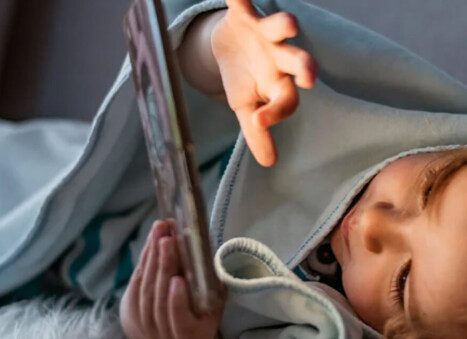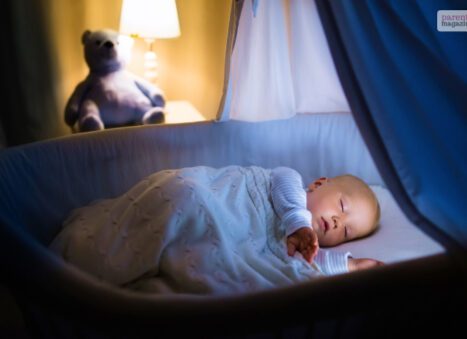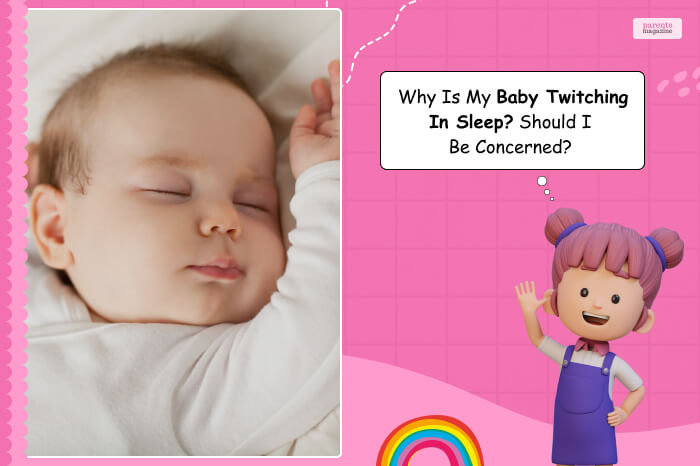
Why Is My Baby Twitching In Sleep? Should I Be Concerned?
There is nothing more peaceful than a baby sleeping. It might look peaceful to you, but does it? There is a common question parents often ask, and that is why is my baby twitching in sleep?
However, according to research, there is nothing to worry about your newborn shaking in sleep. It is mostly because they are developing their motor skills, or they are just dreaming. Well, as a parent it is difficult not knowing the reason behind this, so, let’s discuss the topic in detail.
Baby Twitching in Sleep: What Is It Exactly?
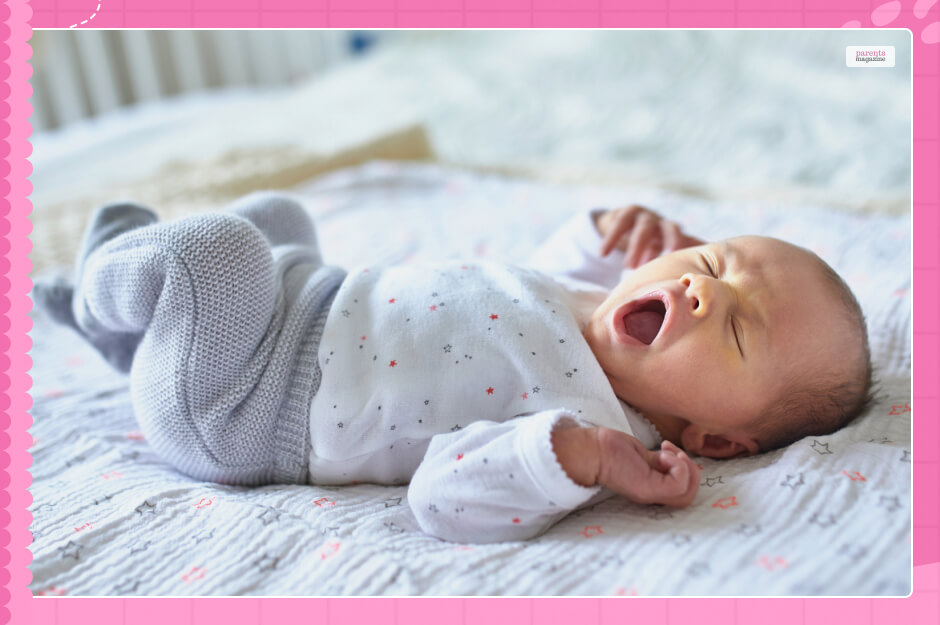
To be precise, in medical terms, baby twitching in sleep is known as benign neonatal sleep myoclonus. In Greek, “myo” means muscle, and “clonus” means twitching.”
This is asleep-related movement and happens when they are in the non-rapid eye movement (NREM) sleep stage. These mostly happen in the first few weeks after their birth but can happen at any stage of sleep.
These happen because of the startle reflex. However, they grow out of it by the time they are three to four months old. You might think your baby is uncomfortable when they are twitching, but they might be having a nice dream.
What Does It Look Like?
Baby twitching looks different from baby to baby. If you have not wrapped your baby, then it might look like they are flailing around their legs and arms. Twitching often seems like a vibration of the arms and limbs, or like they are moving their legs in a rhythm.
This generally does not last very long. It ranges from one to fifteen minutes on average. Here is what it might look like.
- Sometimes it is like they are stretching their arms with open hands
- Eyes moving under closed eyelids
- Twitching limbs
- If your newborn is grunting, cooing, making crying sounds, and peeing while twitching
- This is the most common one. Most of the time it is jerky movements, like punching and kicking in random directions. Also, they wide open their arms and bring them back to the midline
Is Baby Twitching In Sleep Normal?
Baby twitching in sleep is normal, and mostly there is nothing to worry about. This happens in developing infants and there are no neurological disorders associated with this.
However, some studies have found that sleep-twitching causes abnormal muscle tone or hyperexcitability.
Babies do not experience any lasting side effects from these twitches, and there is no researched-backed data that shows the baby is exposed to higher risks of seizures. This is a very rare condition.
The Science Behind Baby Sleep Movements
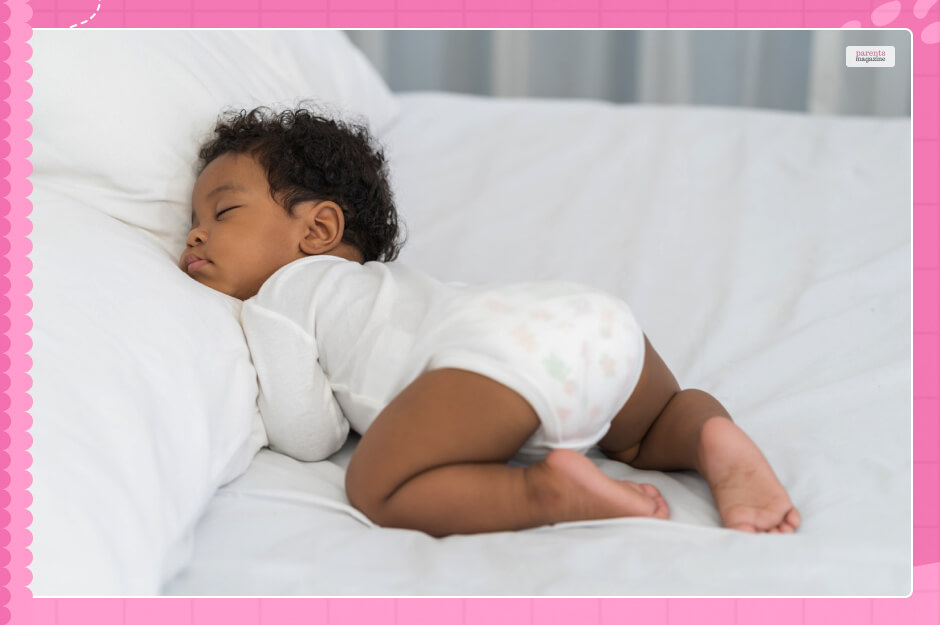
Babies change their positions in sleep because of the sleep cycle. This includes REM and NREM. Moreover, they also move because of the Moro reflex, which is their involuntary response to loud noise or a sudden change in position.
Sleep Cycles
Do you worry about your baby’s sleep and how it is important for their growth? Sleep cycles can be segregated into two different parts as I mentioned above.
- Active sleep (REM): This is the stage where babies dream, move around, and twitch. Their eyes move even with their eyelids closed, their breathing often speeds up and they move their mouth and smile as well.
- Quiet sleep (NREM): This is the phase where babies lie still, and their breathing is rhythmic and even. However, they even can twitch during this phase as well.
Moro Reflex
This is normal, as they are growing their nervous systems, and this generally goes away in 3 to 6 months. Newborns often jerk because of this reflex.
Hypnic Jerks
These are sudden body contractions that occur when the baby is trying to wake up from sleep or trying to fall asleep. The brain tries to understand what is happening when the muscles relax while falling asleep.
Often the brain thinks that you are falling and contracts the muscles to “catch yourself.” Tiredness and sleep deprivation also cause hypnic jerks.
Why Do Babies Twitch In Their Sleep: Common Causes
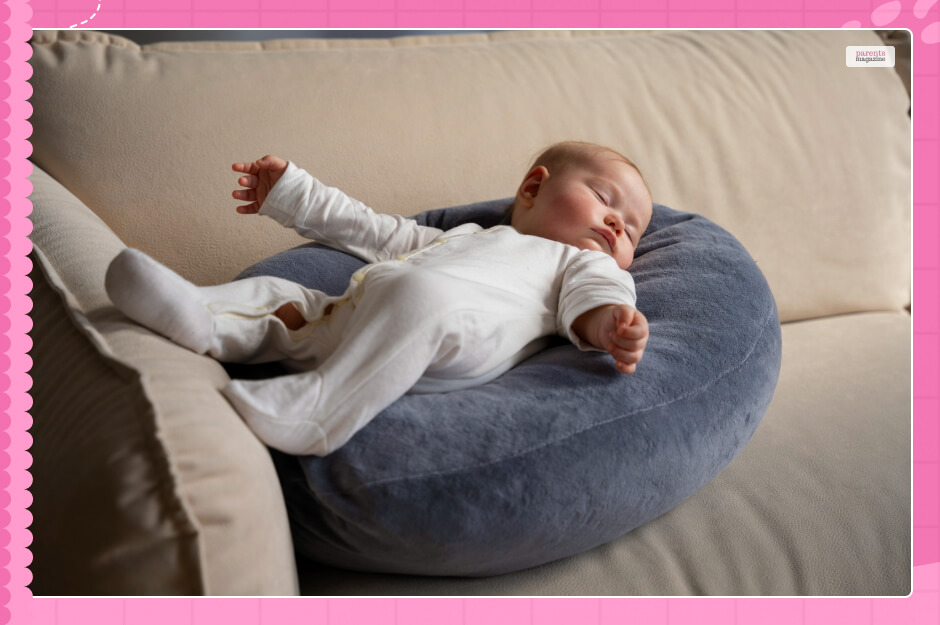
The most common reason behind sleep twitching is reflexes. They can twitch because of the tonic neck reflex or moro reflex. However, there are other prevalent causes, like:
It Is Their Development Phase
Babies are born with immature neurological systems, and this is one of the major reasons that makes them move and twitch often.
According to some research, baby twitching in sleep is a part of their developing process. This is the time they are discovering their limbs and learning to move them.
They’re Dreaming
Dreaming is another because that makes a baby twitch in their sleep. This is something very common in NREM sleep, however it can also happen in REM sleep. This is the sleep cycle where all humans dream.
How To Know If It Is Concerning?
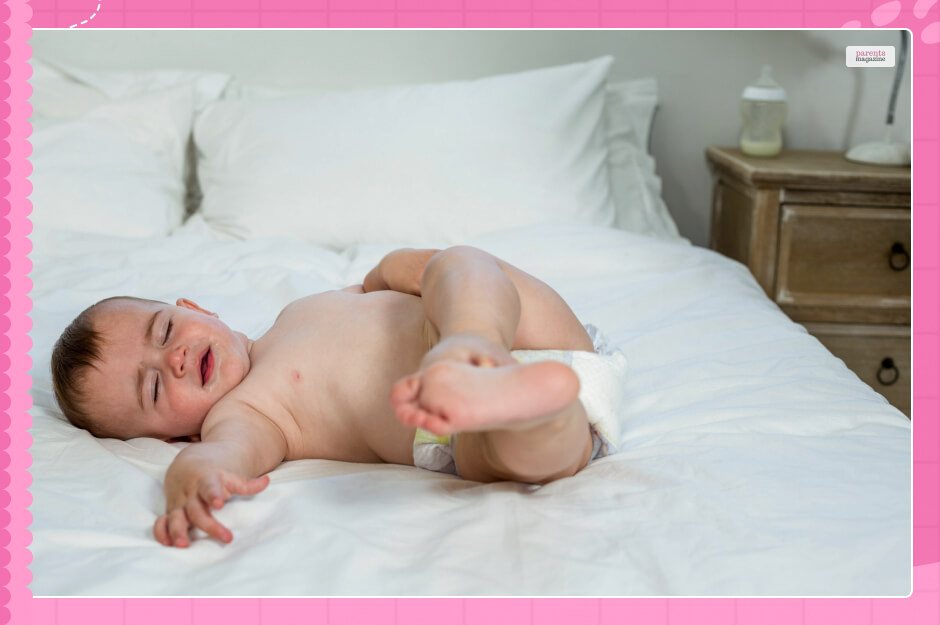
As a parent, it is normal that you will be concerned if your baby shakes in sleep. Most of the time these are harmless. However, how will you identify when it is becoming serious? How will you know whether it is normal development signs or symptoms for something serious?
Newborn twitching is harmless if it stops immediately when the baby wakes up. These are not supposed to continue when they are awake. If they are showing these symptoms and their muscles stiffen when they are awake, then it could be a seizure issue:
- Epilepsy: Seizures are often caused by epileptic seizures.
- Infantile spasms: These start within the age of 2 to 12 months. You will notice quite a few jerks and their muscles stiffening after that.
- Febrile seizures: These mostly happen because of illness, and there is often a temperature rise accompanied by this.
- Benign familial neonatal convulsions: These stop by the time they reach 6 to 9 months of age, and start in the first few days after their birth.
Prevention Tips For Excessive Twitching
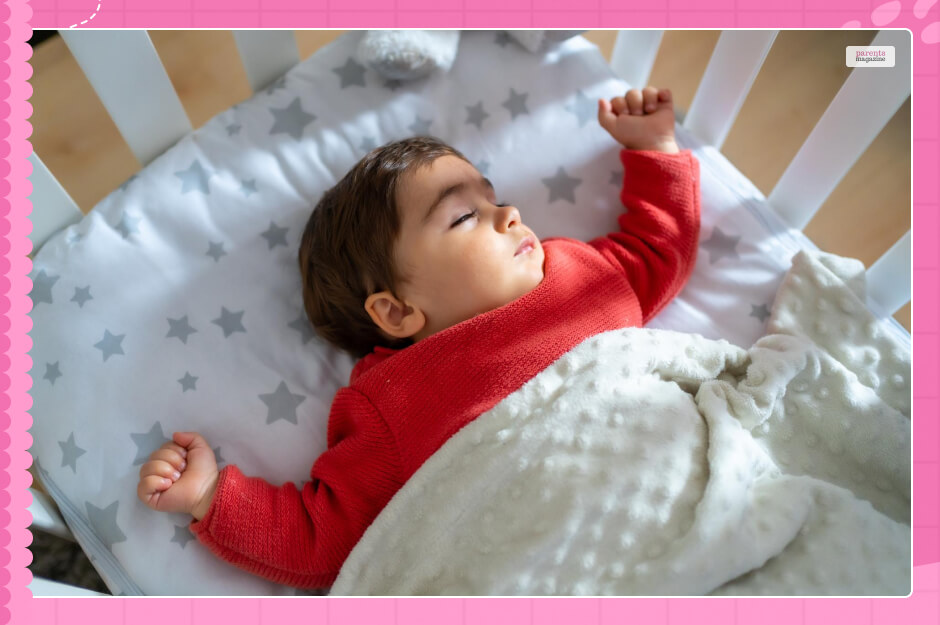
Well, there is essentially no need to prevent baby shaking in sleep. Twitching is normal, and will automatically stop when this phase is over. This is a natural response as their brain is growing.
You can leave them alone. Just keep an eye on them and check how they are reacting to these twitches. See if they are waking up with this, or if they are sleeping. If they seem peaceful, not turning red or changing color, making no noise and it stops in a while, then do not intervene.
If you still want to minimize their twitching, then you can try a baby swaddle. This will decrease their chances of twitching. This way, they stay wrapped up and would frail less.
Moreover, the twitching stops by itself, when it is time to transition them out of the swaddle.
By the time they reach two to four months, they start to generate sleep hormones. This is when the twitch stops.
When To See a Pediatrician?

You are a parent. Normally, you will be concerned for your baby. So, the moment you feel something is off with your baby, and the twitch does not stop when they wake up, consult a pediatrician immediately.
If you see them twitch even when they are awake, you should talk with their pediatrician. Moreover, if they are not feeding or eating well, and getting poor tones like grayish, bullish, or yellowish along with the twitching, then take them to an ER immediately.
Additionally, if there are some other symptoms like difficulty in breathing, abnormal movements when they wake up from their sleep, not taking enough food, or if they get a temperate that goes above 100.4 degrees Fahrenheit when they are not even 12 weeks, consult a pediatrician as soon as possible.
FAQs
Here are some of the common questions parents ask when they are discussing baby twitching in sleep. Here are the questions listed.
A complete episode of baby twitching generally lasts from one to fifteen minutes. However, in some rare cases, these episodes can last for one hour.
There is nothing concerning about baby twitching in sleep. It is mostly caused because of reflexes, or because of their developing brain. This stops the moment they wake up.
If this is just twitching, then there is nothing to worry about their development. It is not going to affect their development. On the contrary, it is a sign that they are growing just fine.
Yes, it is more common in premature babies as that is a natural part of developing their nervous system.
Twitching generally stops when the baby wakes up. Seizures happen even when the baby is awake, along with stiffness in muscles.
Conclusion
Even though it is not harmful, people often confuse the condition with epilepsy, or other conditions that need medical attention. So, if you notice seizure-like movements, or there is a family history of seizures, or the baby is born to a mother with opioid addiction, it is better to see a professional to rule out other illnesses.
These days researchers are looking for data to support the idea that twitches can program the brain. They are looking for these data from robotic studies. When this twitching movement is copied in robot models of the musculoskeletal system, they shape their neural path. So, next time to find your baby twitching in sleep, know that they are working on their brain development.
Already have an account?
Sign In
Create your account
User added successfully. Log in







